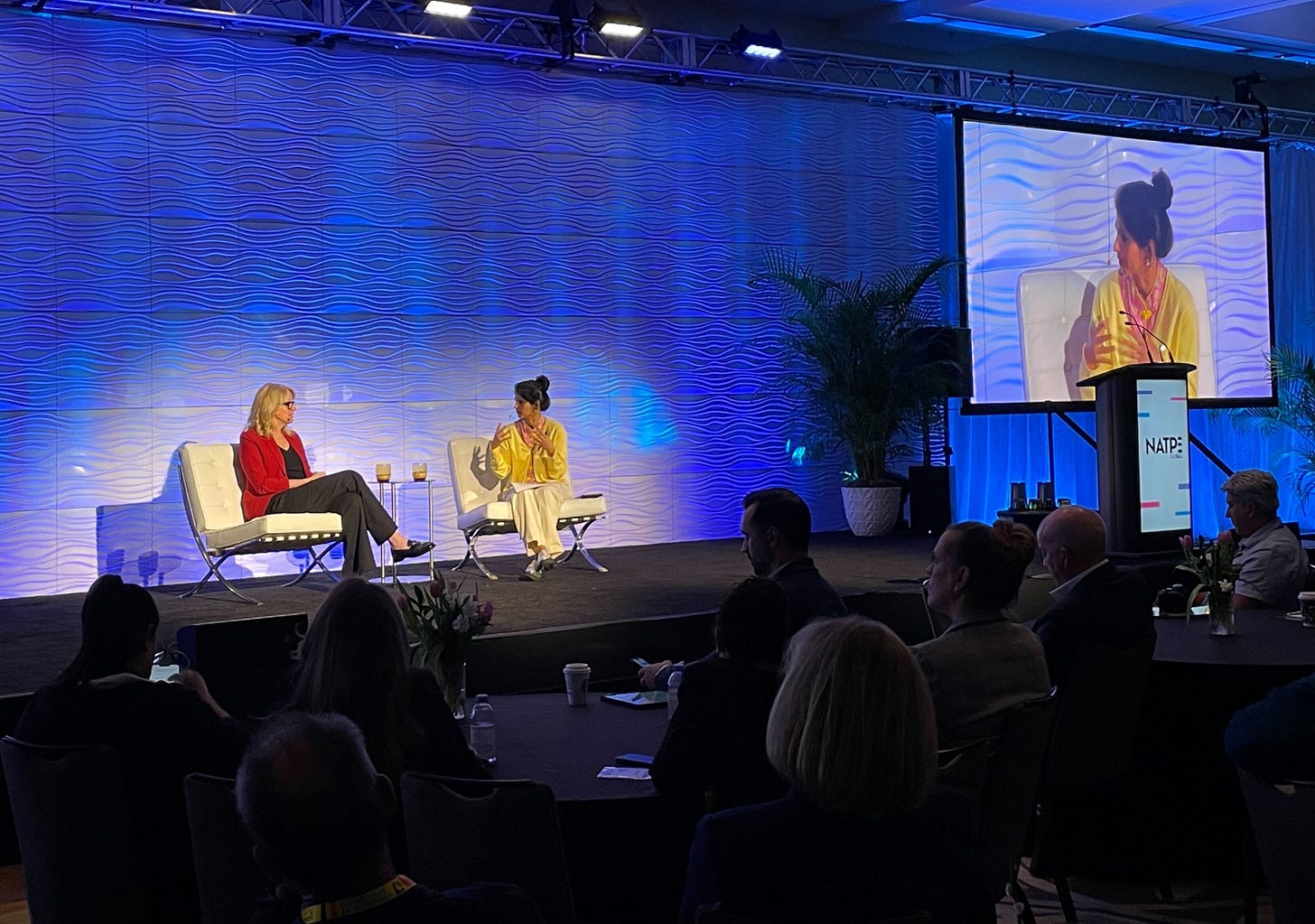Psst! Your Fave U.S. Game Show is Probably Shot in Ireland
Forget #StayinLA as Fox turns a south-of-Dublin area into a 'conveyer belt' and the country sets an unprecedented incentive

Manori Ravindran covers int’l TV from London for Series Business. She recently wrote about how the U.K.’s Studio Lambert mints reality hits like Traitors, “blue cheap” workarounds to make premium-looking TV for less and how producers are cashing in on YouTube and AI. As a paid subscriber to Series Business, you’ll receive reports from Manori, Lesley Goldberg and Elaine Low for a global perspective on the TV business. This is a standalone subscription separate from The Ankler. For access to Series Business and everything The Ankler publishes, including Sean McNulty’s The Wakeup and Richard Rushfield, subscribe here.
Hello, Series Business readers. I’ve just about recovered from my week in Miami for Realscreen and NATPE, where Elaine Low and I moderated panels on brand-funded entertainment, the outlook for media in 2030 and what certainly felt like everything in between. It was wonderful to meet so many Series Business fans in person!
I’m going to go full Richard Rushfield here for a second, reload my typewriter and tell you that I first attended Realscreen in Washington, D.C. back in 2014 when docusoaps and reality television were in their prime on American cable networks. You couldn’t turn a corner without being accosted by a psychic or taxidermy enthusiast looking for their big break. And you know what? Some of them got lucky — such was the demand for “great characters” to fill out those cable schedules.

This year, I was buttonholed in a bathroom by a broadcast journalist striking out on her own with a true crime documentary pitch. “Why aren’t any of these execs getting back to my emails?” she implored. I explained that the industry has never been more averse to new and untested ideas — and sadly, new and untested people, too. Sure, I saw the odd go-getter ambushing an executive in the InterContinental Miami lobby, but my impression was that today’s Realscreen caters to a far more hard-nosed unscripted community.
Nowhere was this more obvious than among the klatsches of American reality TV producers talking about international co-productions and working overseas. Three years ago, I wouldn’t have dreamt of seeing these producers venture even north of the U.S. border. But, as we say in the U.K., needs must.
“Budgets have come down aggressively,” says Jenny Daly, president of Critical Content, the prodco behind such unscripted hits as Catfish and The Home Edit (as well as scripted fare). “You have to really figure out, ‘Well, if I’ve lost my assurance of dollars and cash flow into the company, how do I then own my IP so that I can continue to grow if I’m not getting in on the initial intake?’ That’s the switch.”
For Daly, who sold her Storage Hunters outfit, T Group, to Critical Content in 2018, this new normal has meant partnering with various international companies in countries such as Germany, France, Australia, Korea, Singapore and Dubai for unscripted formats. With the Dubai-based Blue Engine Studios, she’s cooking up a “big, physical competition show” that will be shot in the Middle East.
“We’re building a concept that is perfectly housed within their terrain, and which their audience would be interested in, meaning their programmer [will buy] into it,” says the Los Angeles-based Daly. “That gives me an igniter because it’s localized for interest, and lets me have the rest of the world to sell to.” Critical Content will take the format — for which both production companies share format rights — out to France and Australia, and then back to the U.S.
Would Daly prefer to shoot Stateside? “Absolutely! Why wouldn’t we?” she says. “It’s actually a lot of work and loss of control having to outsource. But influencing our actual degree of production is going to come down to our local government.” (Even if the Buffy reboot is the rare show that will shoot in L.A., witness the robust #StayinLA campaign Elaine wrote about last week.)
Hollywood’s shift to overseas production has been contentious, to say the least. But it’s hard to argue with the efficiencies and savings available right now in countries around the world. One broadcaster that kept coming up in Miami among producers was Fox Entertainment, which has filmed shiny floor shows including Name That Tune, The Floor and Beat Shazam in a studio hub in Ireland. While one producer was quick to call Fox “the problem,” another countered that the company is just doing what it has to in order to save money.
Upon returning home to the U.K., I sought out the view from Europe. How does an Irish producer cater to this demand? What is it like when Americans roll into town? Warning: Even when everyone is a native English speaker, things can be lost in translation.
In this issue, you’ll learn:
The massive tax incentive Ireland is now offering unscripted series
The huge share of U.K. prestige production spend that comes from the U.S., but ...
Why moving to Europe may be a short-term solution for American production workers seeking steady incomes
How one Irish producer stood up a model for unscripted that lured multiple U.S. productions
Why Fox exported a “conveyor belt” of shiny-floor shows to Ireland
How to “Americanize” a format for a U.S. network shooting overseas
The pitfalls in casting an Irish audience for an American show (“We make television slightly differently in terms of tone”)
The different models for “hubbing” productions
The typical budget for a U.S. network game show shot in Ireland, and how its flexible tax incentives there can create even more savings




